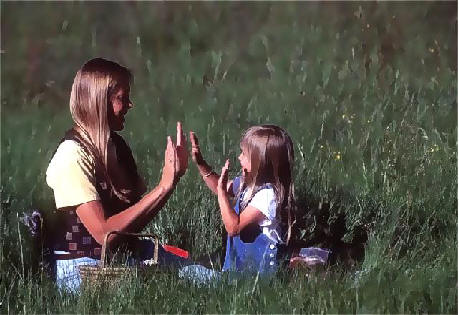
Family Support in NYS PBIS
Family Involvement Type 1
Parenting

Basic
Responsibilities of Families
![]() Housing,
health, nutrition, clothing, safety
Housing,
health, nutrition, clothing, safety
![]() Parenting
skills for all age levels
Parenting
skills for all age levels
![]() Home
conditions that support children as students at all grade levels
Home
conditions that support children as students at all grade levels
![]() Information
and activities to help schools understand children and families
Information
and activities to help schools understand children and families
Challenges For Schools
![]() Provide information to
all families who want it or who need it, not only to the few who attend
workshops or meetings at the school building
Provide information to
all families who want it or who need it, not only to the few who attend
workshops or meetings at the school building
![]() Enable families to share
information with schools about background, culture, talents, goals, and needs
Enable families to share
information with schools about background, culture, talents, goals, and needs
Redefinitions
“Workshop” is not only a meeting on a topic held at the school building, but also the content of that meeting to be viewed, heard, or read at convenient times and varied locations
Expected Outcomes
Students:
![]() Awareness of family supervision; respect for
parents
Awareness of family supervision; respect for
parents
![]() Positive Personal qualities, habits, beliefs,
and values, as taught by the family
Positive Personal qualities, habits, beliefs,
and values, as taught by the family
![]() Balance between time spent on chores, on
other activities, and on homework
Balance between time spent on chores, on
other activities, and on homework
![]() Good or improved attendance
Good or improved attendance
![]() Awareness of importance of school
Awareness of importance of school
Primary Care Giver/Parent/Guardian:
![]() Understanding of and confidence about
parenting, child and adolescent development, and changes in home conditions for
learning as children proceed through school
Understanding of and confidence about
parenting, child and adolescent development, and changes in home conditions for
learning as children proceed through school
![]() Awareness of own and others’ challenges in
parenting
Awareness of own and others’ challenges in
parenting
![]() Feeling of support from school and other
parents
Feeling of support from school and other
parents
Teachers
![]() Understanding families’ backgrounds,
cultures, concerns, goals, needs, and views of their children
Understanding families’ backgrounds,
cultures, concerns, goals, needs, and views of their children
![]() Respect for families’ strengths and efforts
Respect for families’ strengths and efforts
![]() Understanding of student diversity
Understanding of student diversity
![]() Awareness of own skills to share information
on child development
Awareness of own skills to share information
on child development
Sample Practices
![]() Suggestions
for home conditions that support learning at each grade level
Suggestions
for home conditions that support learning at each grade level
![]() Workshops,
videotapes, computerized phone messages on parenting and child rearing for each
age and grade level
Workshops,
videotapes, computerized phone messages on parenting and child rearing for each
age and grade level
![]() Opportunity
for family education and other courses for parents/caregivers (e.g., GED,
college credit, family literacy)
Opportunity
for family education and other courses for parents/caregivers (e.g., GED,
college credit, family literacy)
![]() Family
support programs to assist families with health, nutrition, and other health
services
Family
support programs to assist families with health, nutrition, and other health
services
![]() Home visits
at transition points to preschool, elementary, middle, and high school;
Neighborhood meetings to help families understand schools and to help schools
understand families
Home visits
at transition points to preschool, elementary, middle, and high school;
Neighborhood meetings to help families understand schools and to help schools
understand families